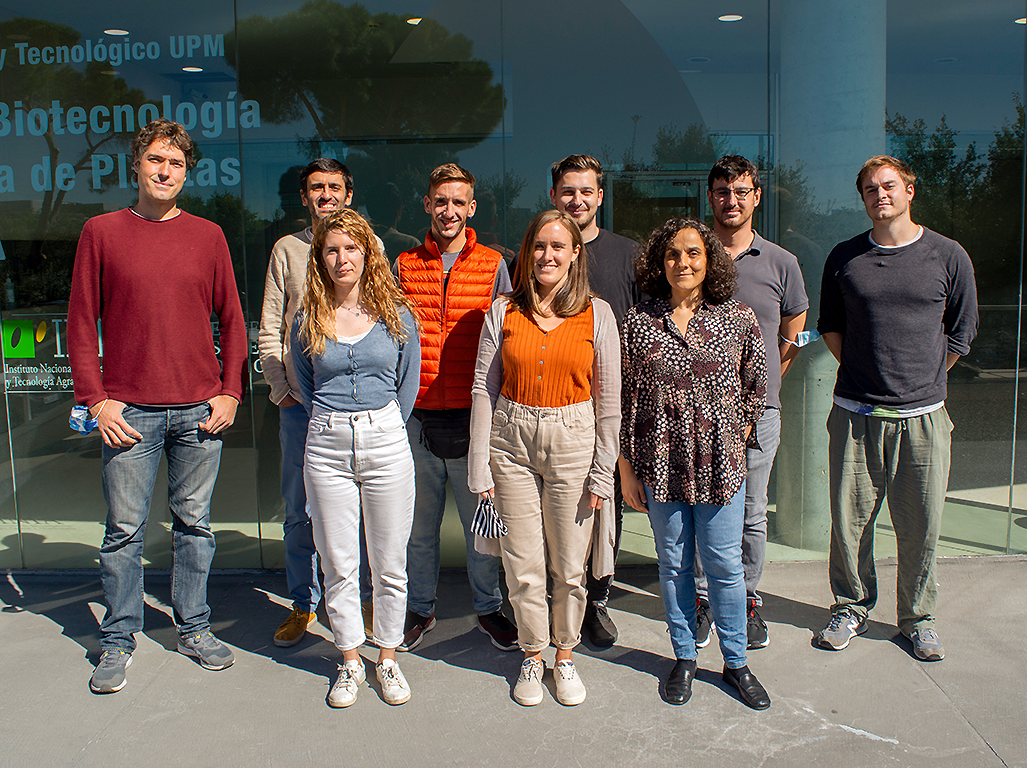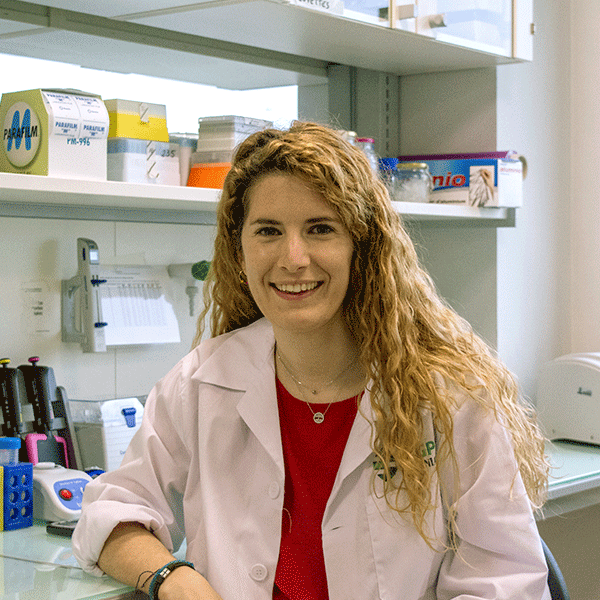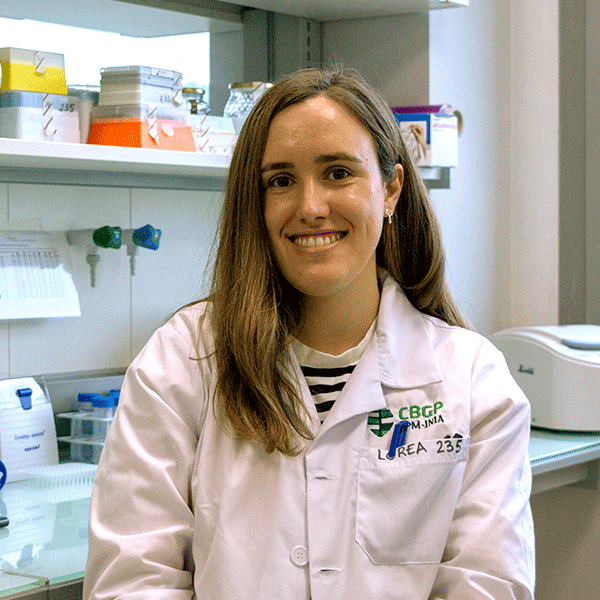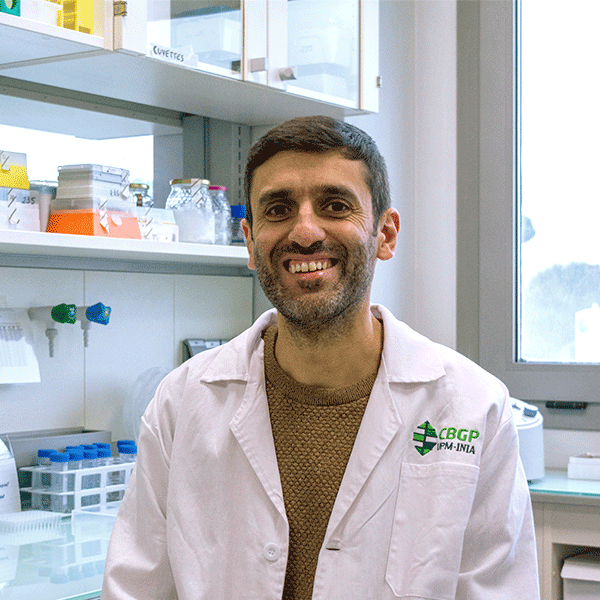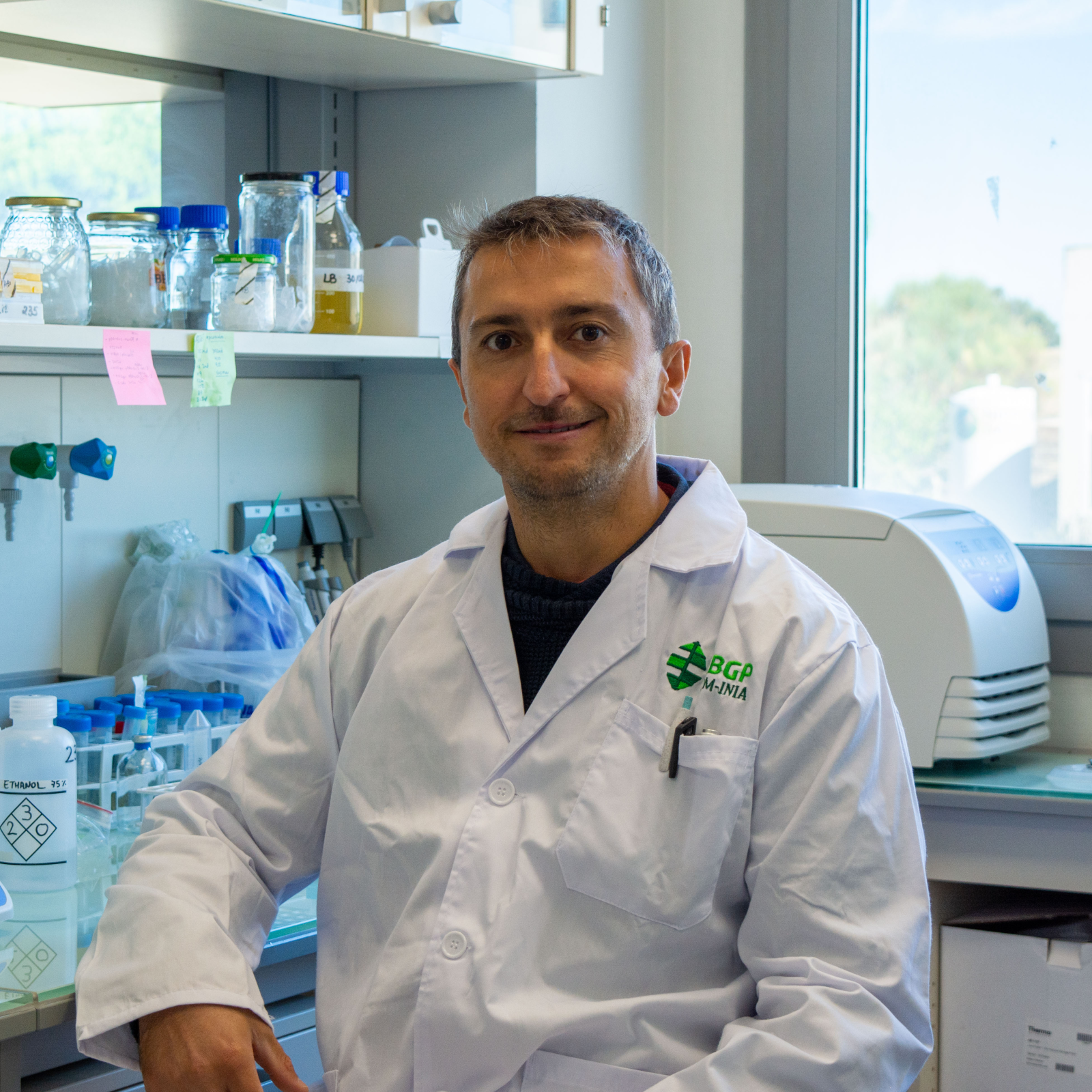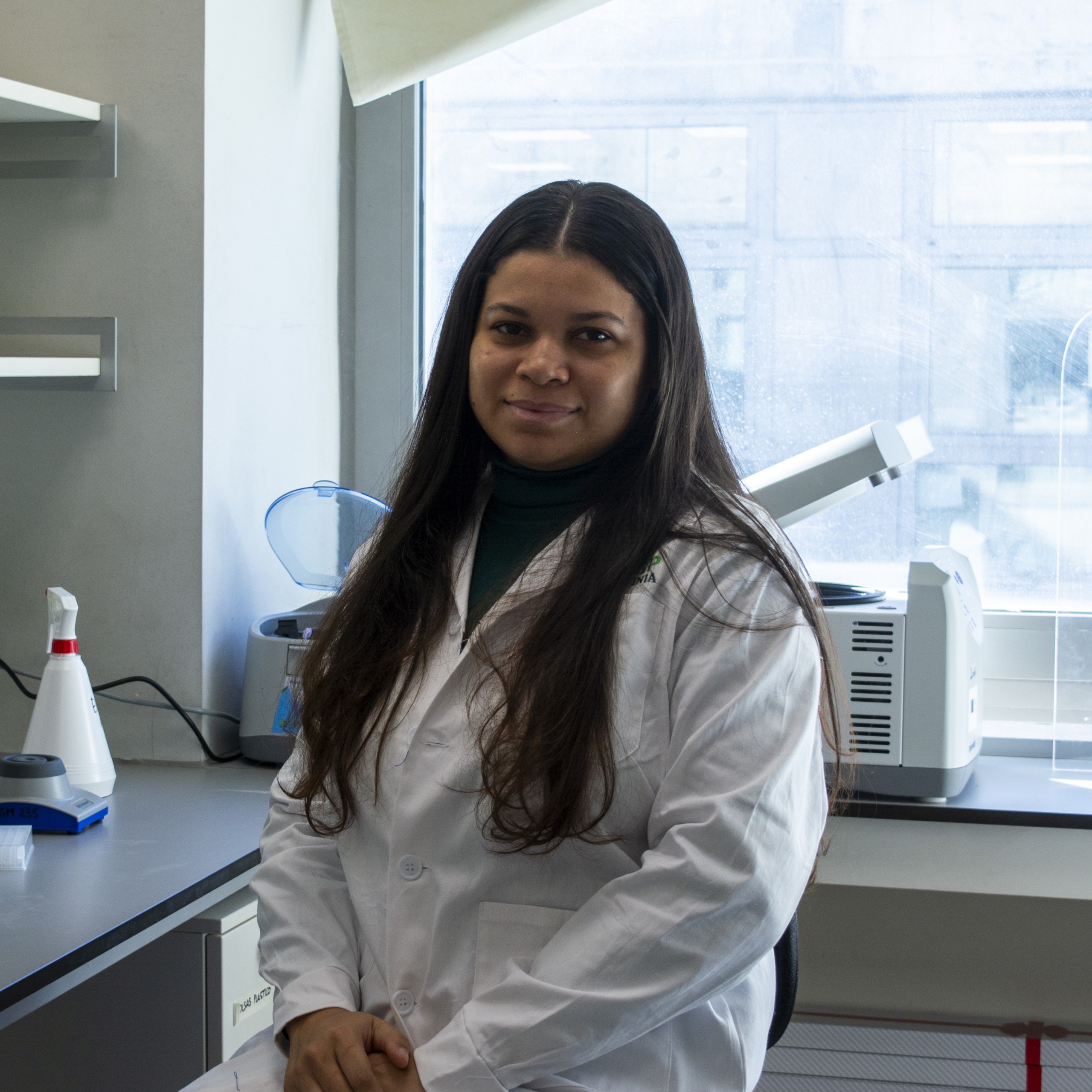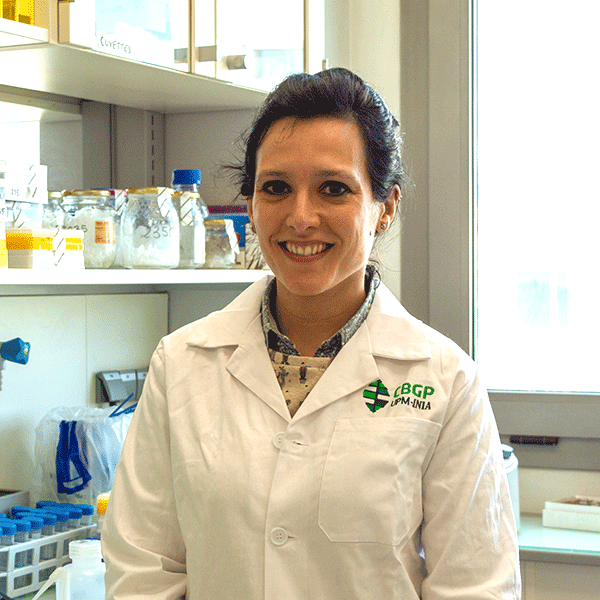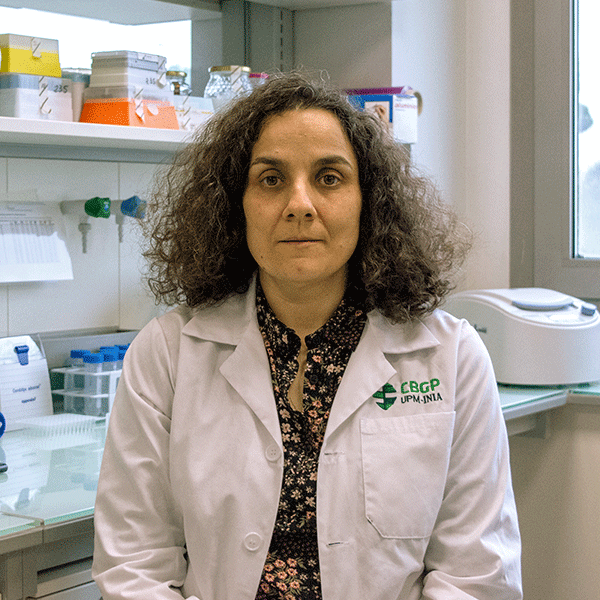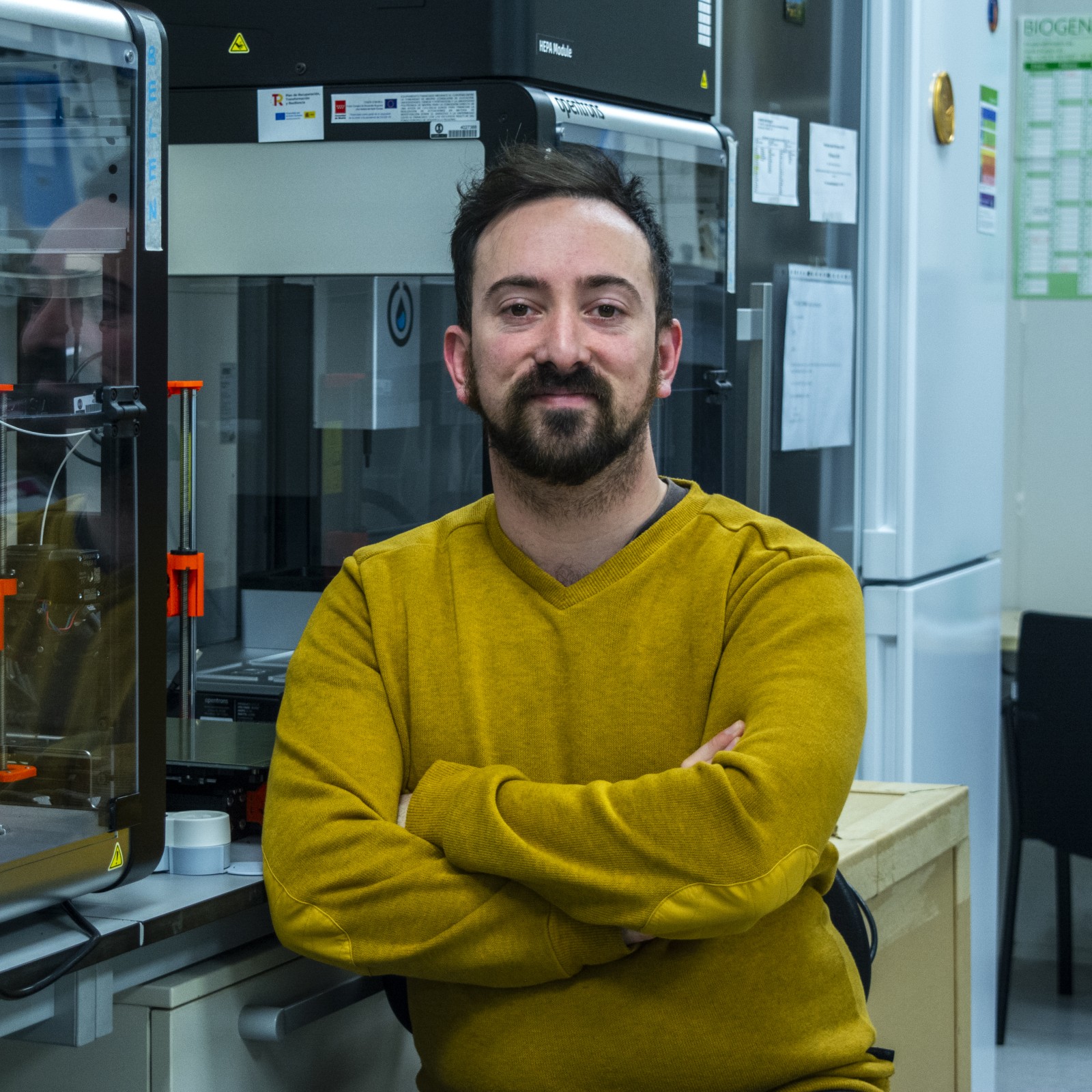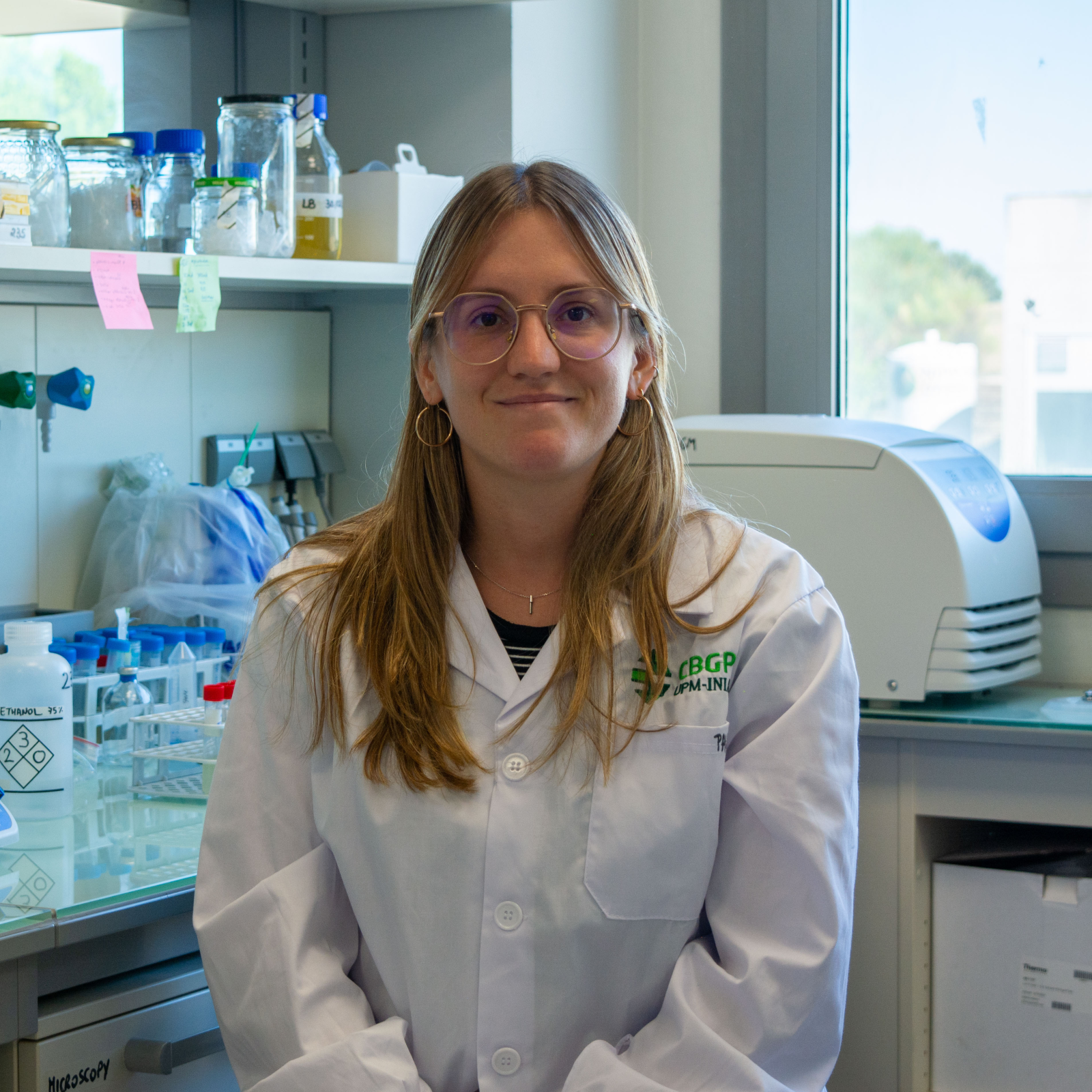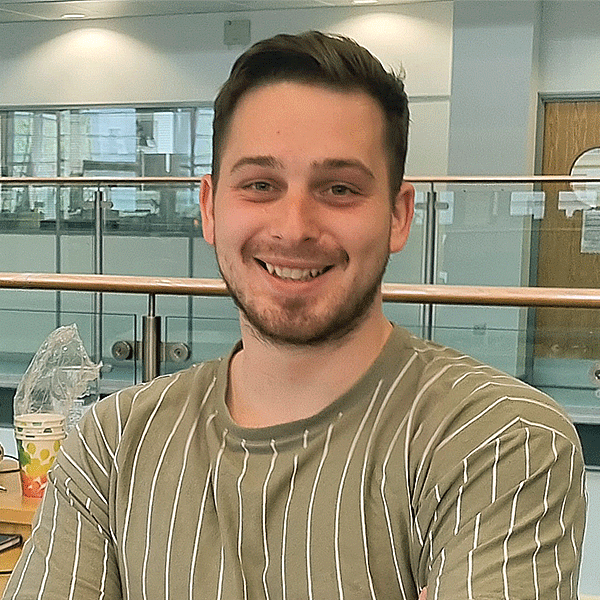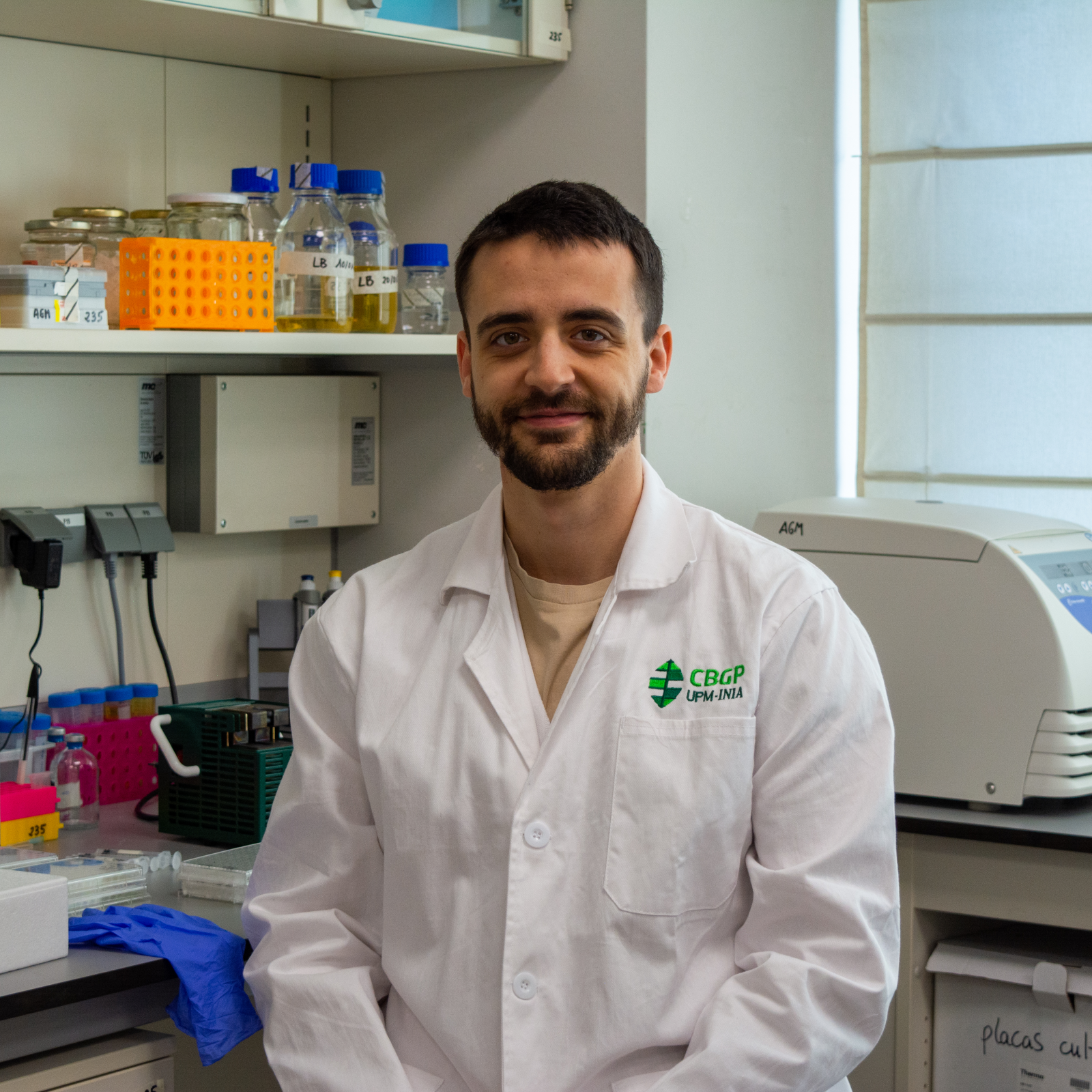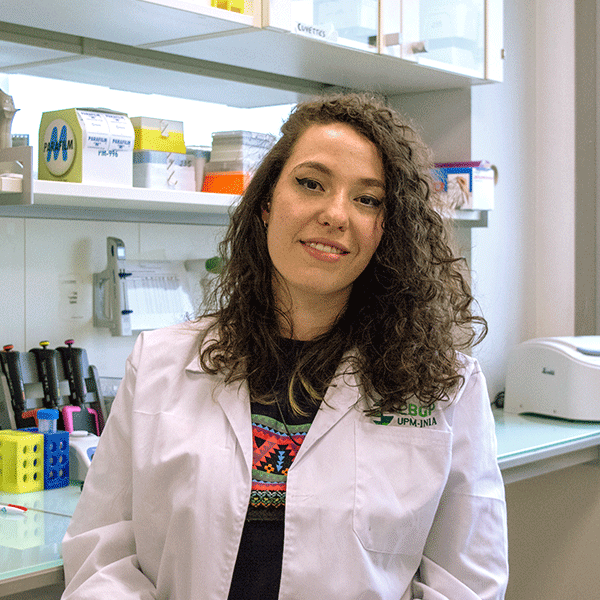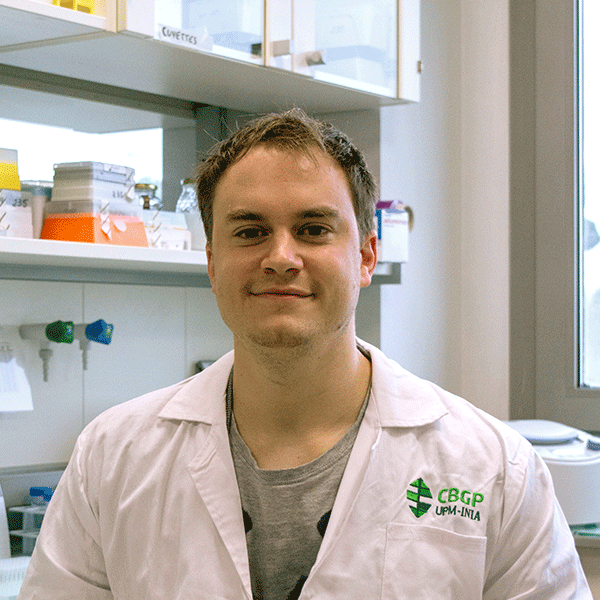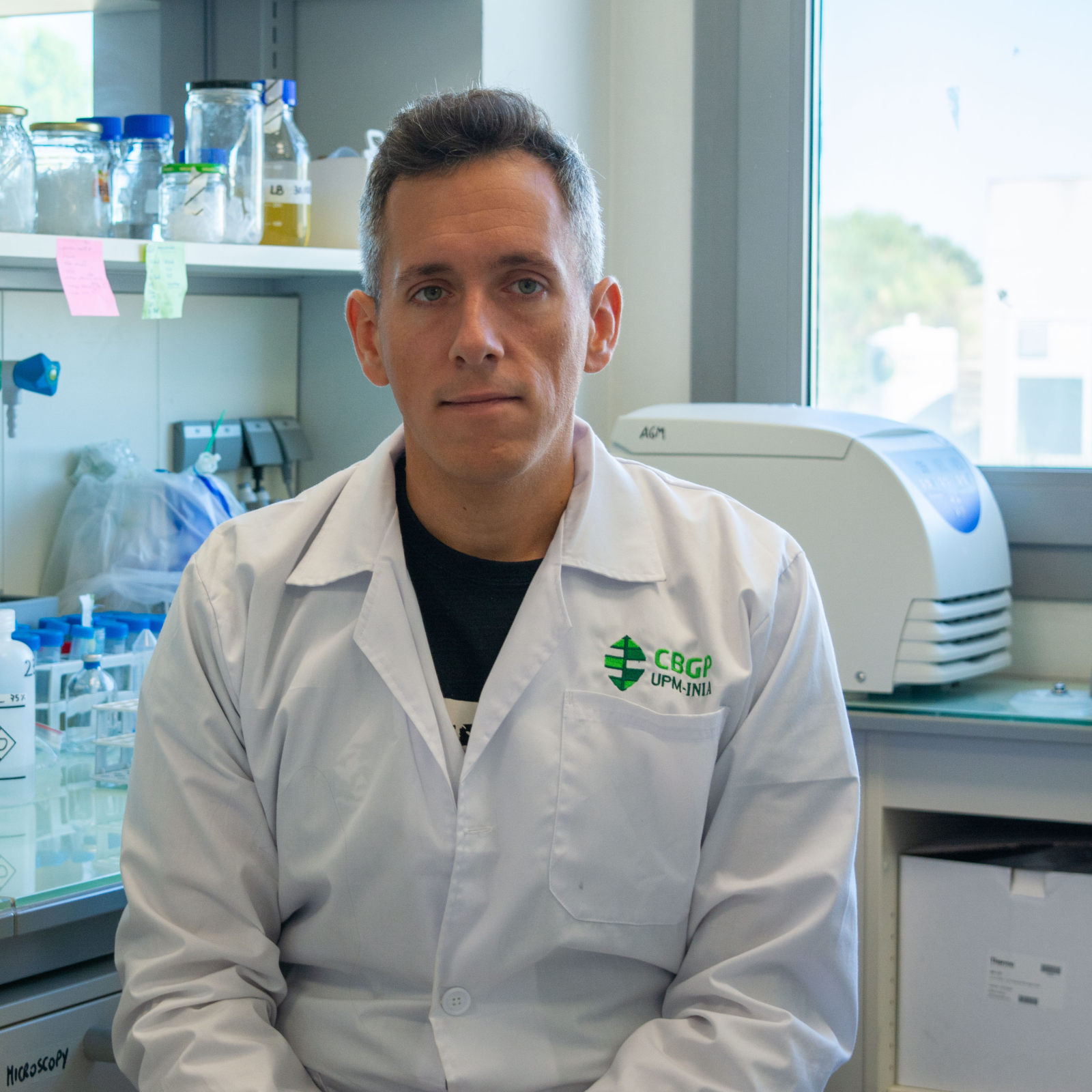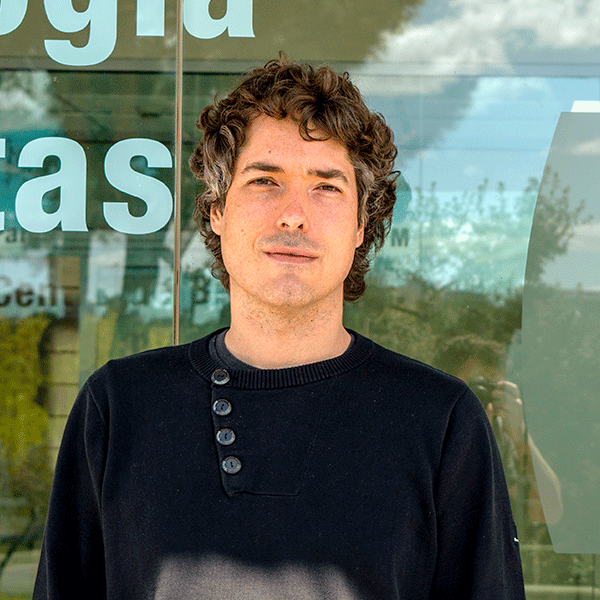
Angel Goñi-Moreno
I am a Computer Scientist by training, and I am still doing computer science, but using living biological systems as hardware / software. I got to know about DNA Computing in my undergrad and started researching on Synthetic Biology for my PhD. After postdoc-ing with Martyn Amos (MMU, UK) and Víctor de Lorenzo (CNB, Spain), I established my first group at Newcastle University (UK). Back to Madrid in 2020 to join the CBGP and launch the Biocomputation Lab. I received an ERC Consolidator Grant in 2022 and was honored with both a Margarita Salas Research Award in 2022 and the Medal of the Spanish Royal Academy of Engineering in 2023
Coral García
I am the project manager and general problem solver of the team. I am also a vet by training so I am always ready to provide random data about animals.
Lorea Alejaldre
After a PhD in protein evolution and engineering in Canada, I have joined the lab to explore the evolutionary dynamics of living organisms with synthetic genes. I am passionate about evolution, biochemistry and nature in general and my main research interest is to increase our understanding of synthetic organisms to better direct engineering applications.
Jesús Miró
I hold a MSc in Biophysics and a BSc in Physics from Universidad Autónoma de Madrid and I obtained my PhD in Artificial Intelligence at Universidad Politécnica de Madrid. My research interests are Systems and Synthetic Biology, Theoretical and Computational Biology, Complex Systems, Oscillations, Chronobiology, Biomolecular Computing.
Ángeles Hueso-Gil
I am a wetlab postdoc in Angel’s lab. In the past, I have worked with optogenetic tools and metabolic engineering with Pseudomonas putida. Currently, I am working on the characterization and utilization of gene expression noise and its role in evolution. I am interested in learning about microbial molecular processes in order to apply this knowledge for the optimization of bacterial functions, both natural or implemented, with different purposes (bioproduction, bioremediation,…).
Maria Elena Rodríguez
I have a degree in Biology specializing in Genetics from the Complutense University of Madrid and I obtained a PhD in the field of biomedical research at the same University, a field in which I worked for several years. I joined this group attracted to programming bacteria for use as bioremediation agents.
Lewis Grozinger
I studied Computer Science at the University of Manchester before starting a PhD in Synthetic Biology. My PhD project looks at how synthetic gene networks can work with other biological networks that move electric charge. These systems are interesting because they can connect gene networks with electrical circuits to augment the capabilities of both. I use mathematical modeling and numerical analysis, as well as fundamental ideas from Computer Science, to predict how these systems behave, and what kinds of interesting dynamics can be engineered.
Matthew Crowther
Computer scientist working jointly between UPM, Spain and Newcastle University, United Kingdom. My PhD project looks at the practical adoption of standards within synthetic biology using knowledge graphs (domain-specific graphs combining commonly generated but often disparate data types). The overall goals are to foster the adoption of standards by automating the data aspects of everyday tasks within synthetic biology workflows.
Manuel Giménez
I hold a MSc. in Computer Science from Universidad de Buenos Aires (UBA), and a MSc. In Biomedical Engineering from Boston University (BU). Before joining the CBGP, I carried out research at the Laboratory on Foundations and Tools for Software Engineering (LaFHIS) [UBA] and at the Biological Design Center (BDC) [BU]. I love teaching and have held assistantship positions both in computer and bio science courses in UBA, BU, NYU and UPM. I am a fan of scientific dissemination and a supporter of open technologies.
Ana Anhel Valdés
I obtained my Biotechnology degree and a MSc in Computational Biology at the Technical University of Madrid (UPM). Besides that, I have done internships in both Centro Nacional de Biotecnología (CNB) and Centro de Biotecnología y Genómica de Plantas (CBGP). Nowadays, I enjoy a technician position at Angel Goñi’s lab being one of the responsables of the Opentrons Liquid Handling robot. My main interest is to use my biological and computational background in the Pharmacology and Omics fields combining experimental and computational approaches.
Juan Méndez-Líter
I have a PhD in in Microbiology, at the Complutense University of Madrid. My main research interest are focused on the use of different parts of living systems for biodegradation processes. First, during my PhD and first postdoc, I studied fungal enzymes that can be used for the degradation of lignocellulose to fulfill industrial needs. Later, I changed my lab, and worked with caterpillars of the wax moth Galleria mellonella, trying to discover its mechanisms for the enzymatic degradation of polyethylene.
Now, I am starting a postdoc in Angel’s lab, with the goal of applying synthetic biology and metabolic engineering tools to enhance the biodegradation of environmentally harmful compounds, using in vivo bacterial systems
Juan Rico Molíns
I am a biologist with special interest in the selection and development of microbes with beneficial traits that can help in mitigating the impact of current production processes. I have previously focused on applying molecular biology and genetic engineering towards the implementation of novel or modified metabolic pathways into yeast, algae and bacteria. I have joined the biocomputation lab as a postdoc to work on a plant growth promoting strain of bacteria. My main aim is to dig into the possibility to provide these bacteria with the mechanisms to sense what the plant is in need of at any given time and deploy an specific response through the integration of a synthetic biology toolset.
Paula Mugica
I hold a Bsc. in Biological Sciences with Honours in Biotechnology from the University of Edinburgh and a Msc. in Applied Microbiology from Universidad Autonoma de Barcelona. I am most interested in the potential of biotechnology to contribute significantly to a sustainable development, and thus after my studies and a few years working in Switzerland and Portugal exploring the area I decided to do a PhD in Synthetic Biology in Angel’s lab.
Pablo Japón
I am a physicist with a BSc in Physics from Universidad de Sevilla and a MSc in Biophysics from Universidad Autónoma de Madrid. Starting a PhD in Synthetic Biology in the lab with main interests on Systems Biology through the modeling of these systems for a better understanding of the mechanisms and laws that govern biology.
Crislaine Kelly da Silva Rocha
I hold a Bsc. in biological sciences and an MSc. in biotechnology from the Federal University of Pernambuco, Brazil. I have experience in genetic engineering and recombinant protein expression in yeast. I am passionate about how we can genetically modify cells to do whatever we want, which motivated me to choose synthetic biology as the main field for my PhD. At the Biocomputation Lab, I work on a project that uses SynBio as a toolkit to engineering a new multi-functional bacteria for plant-related applications.
Bruno Cuevas
I am a computational scientist. I obtained a Margarita Salas post-doctoral fellowship in 2022, which allowed me to work previously at the University of Wisconsin-Madison (USA). Before that, I received my Ph.D. in the CBGP, my master’s in the UAB, and my undergrad in the UPM. I am primarily interested in two topics: the emergence of self-organization in chemical systems and the evolution of proteins. I apply molecular simulation, network analysis, structure prediction, and machine learning techniques to different problems. I am currently in the Biocomputation lab, learning about biological computation and its possible relationship with the most daunting question: the Origin of Life.
Past members
Stefano Grasso
Postdoc
Ruud Stoof
PhD candidate
Thesis:
Spatial modelling of transcription dynamics in bacterial gene regulatory networks.
Alexander Wood
Postdoc
Huseyin Tas
PhD candidate
Thesis:
Upgrading Pseudomonas putida as a Synthetic Biology chassis through inter-operativity of genetic devices.
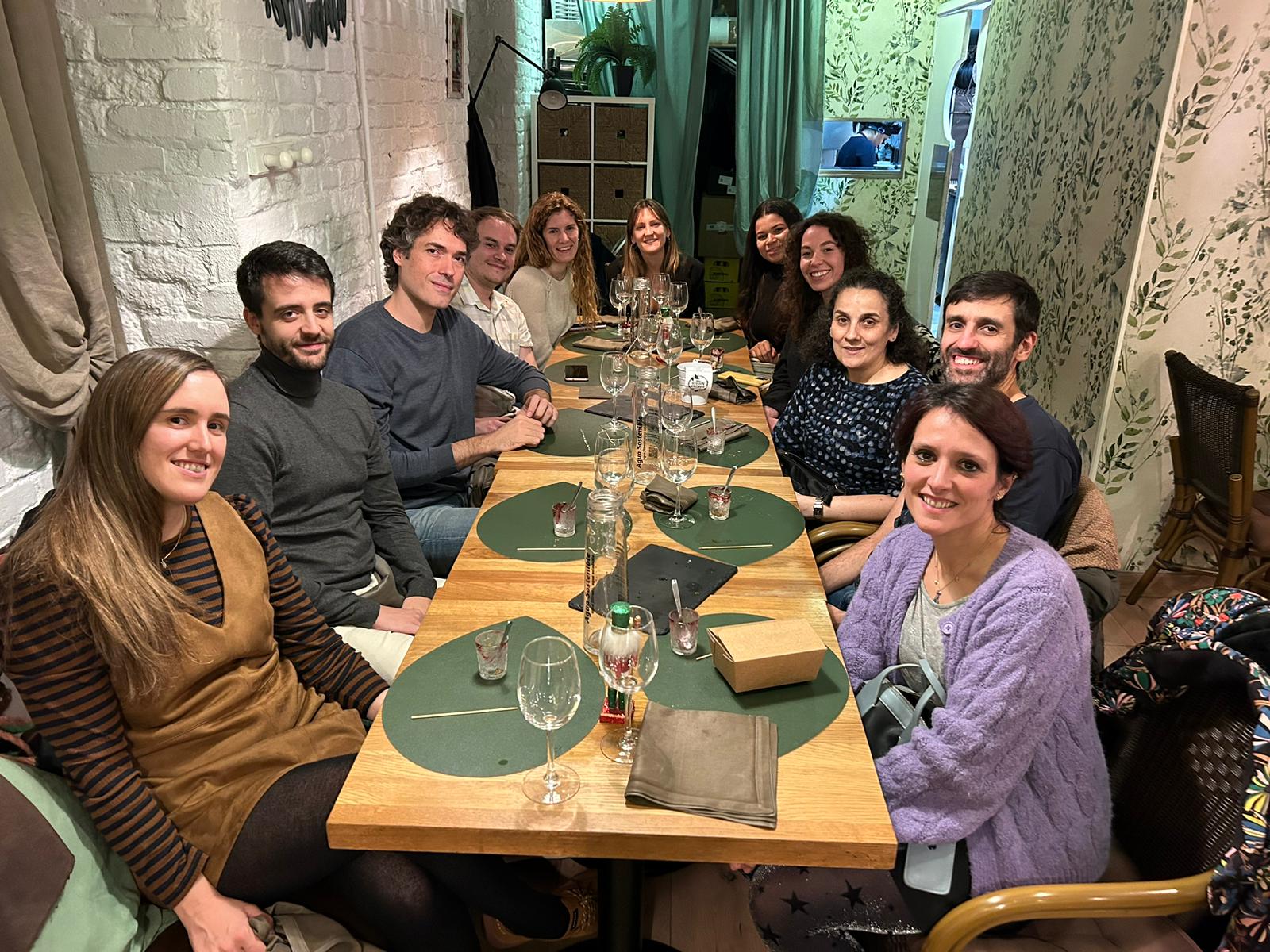
Christmas Meal – Dec 2023
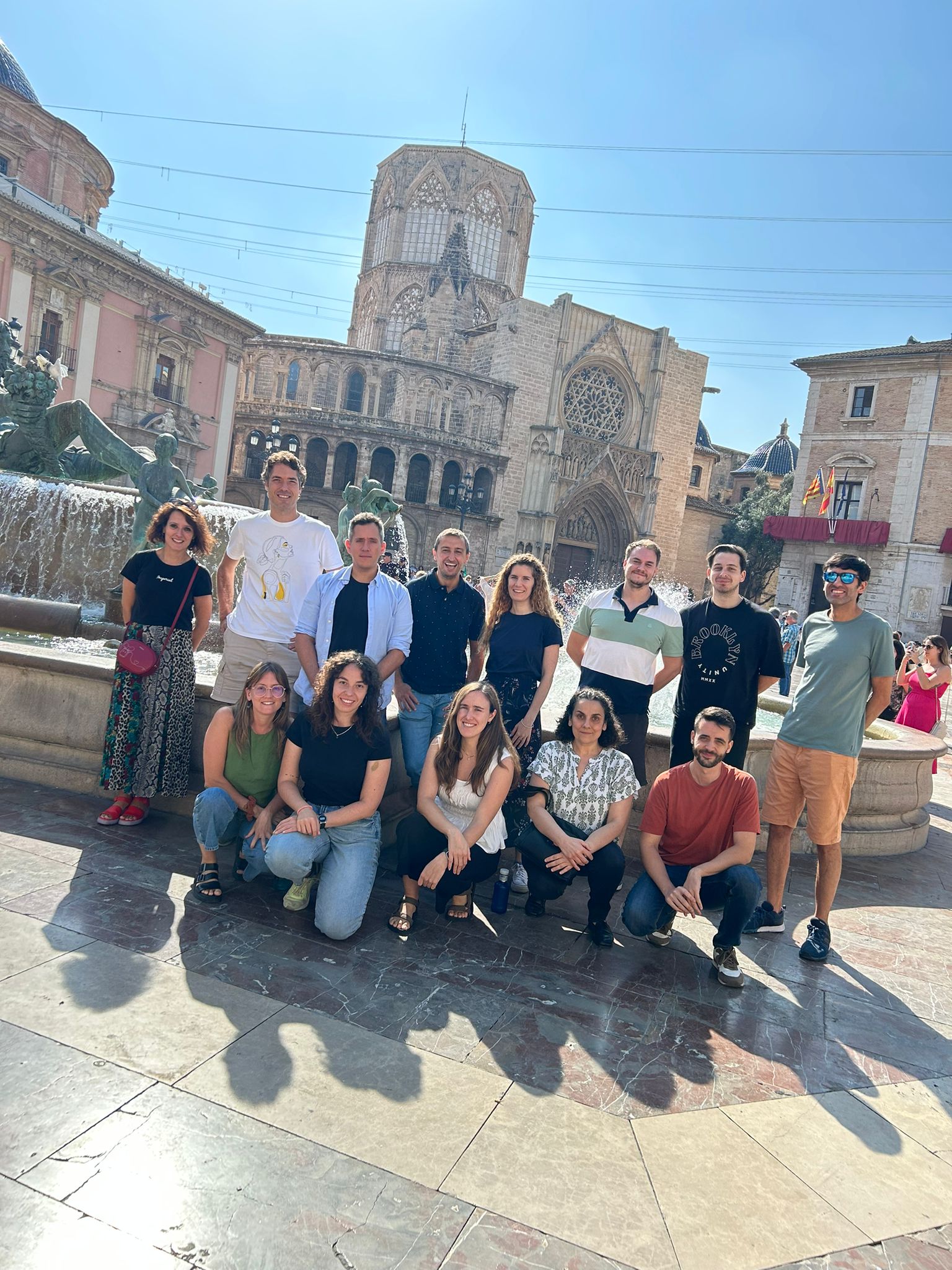
Lab Retreat in Valencia – Oct 2023
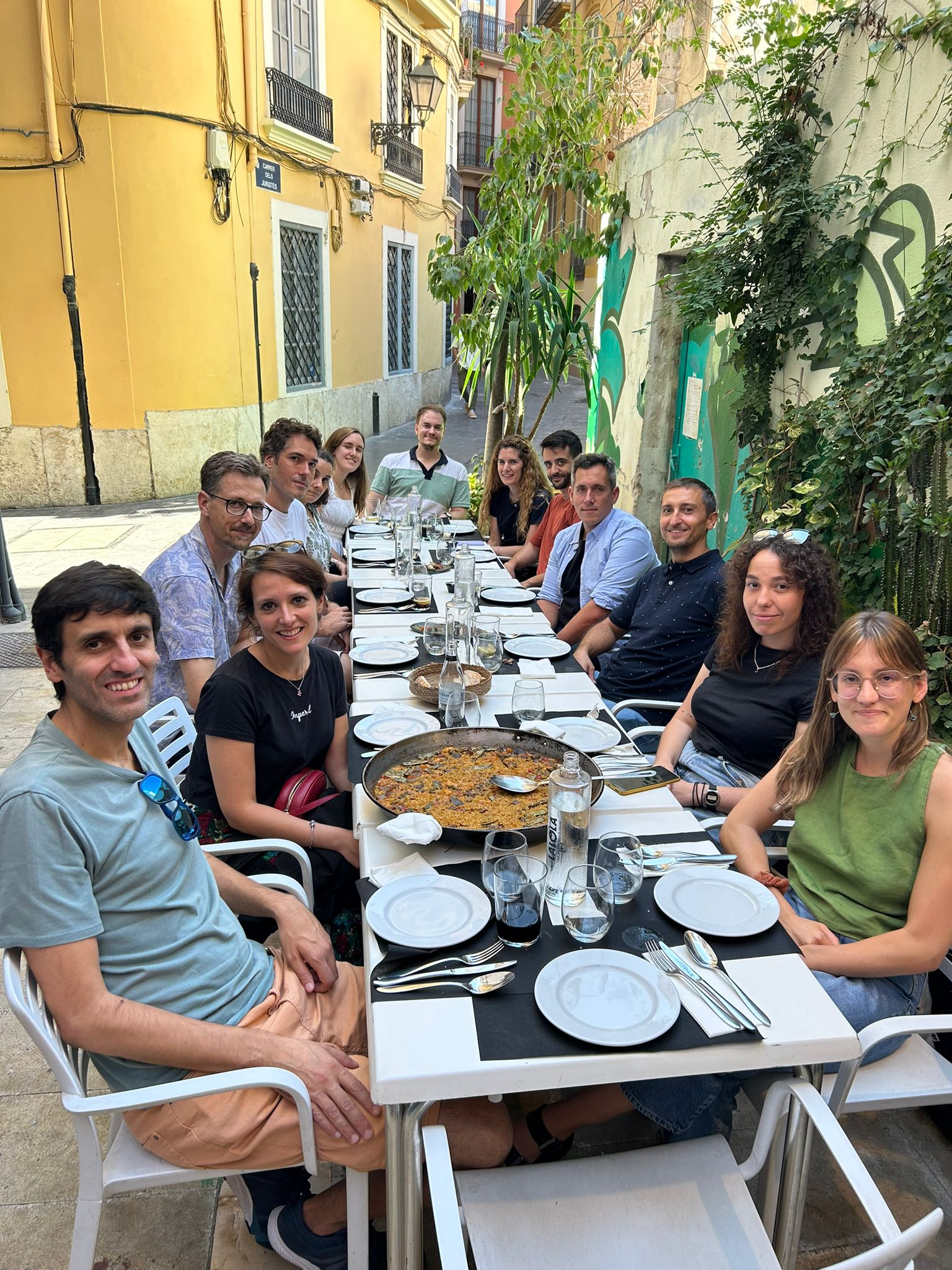
Lab Retreat in Valencia – Oct 2023
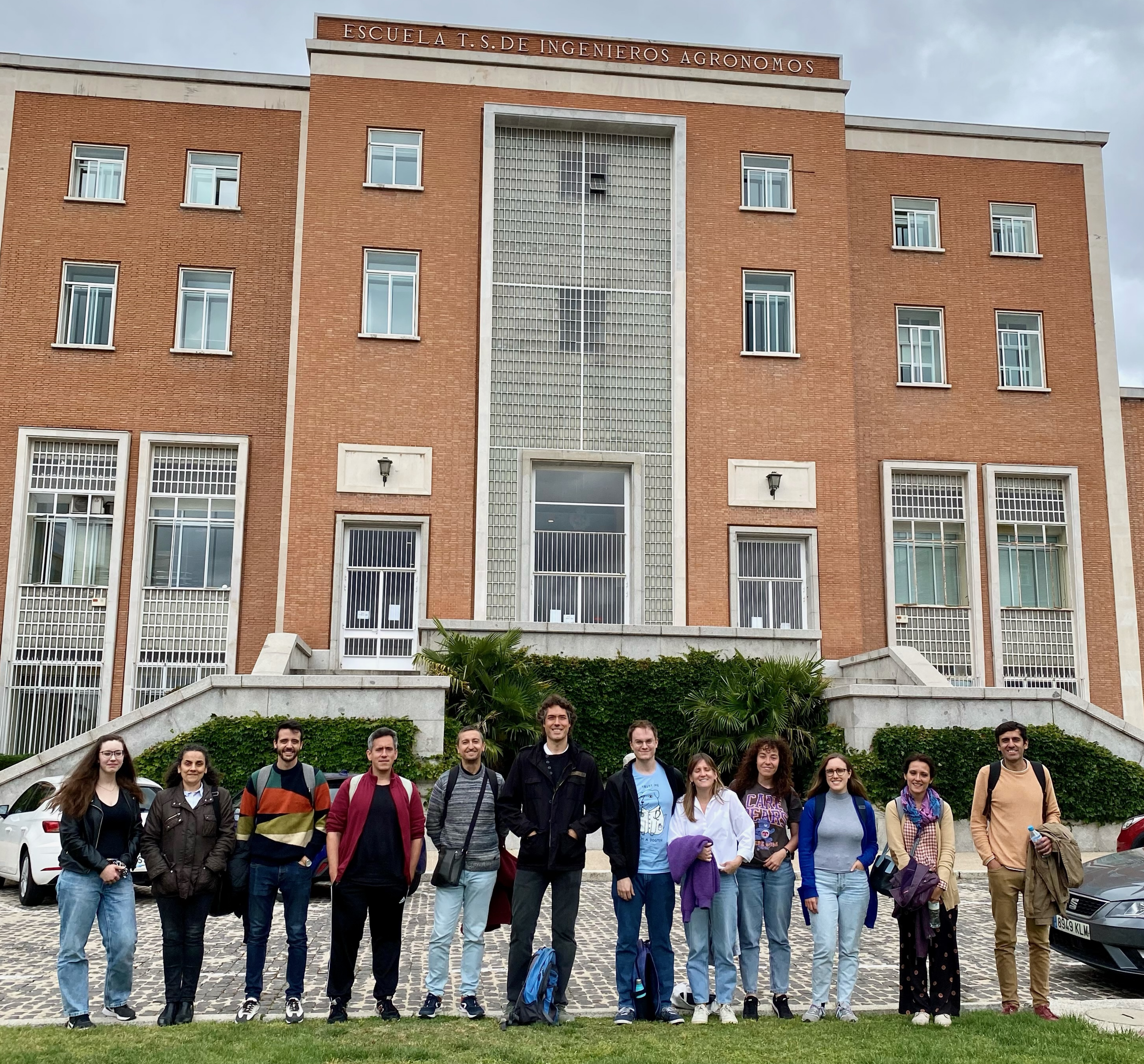
Research Away Day – May 2023
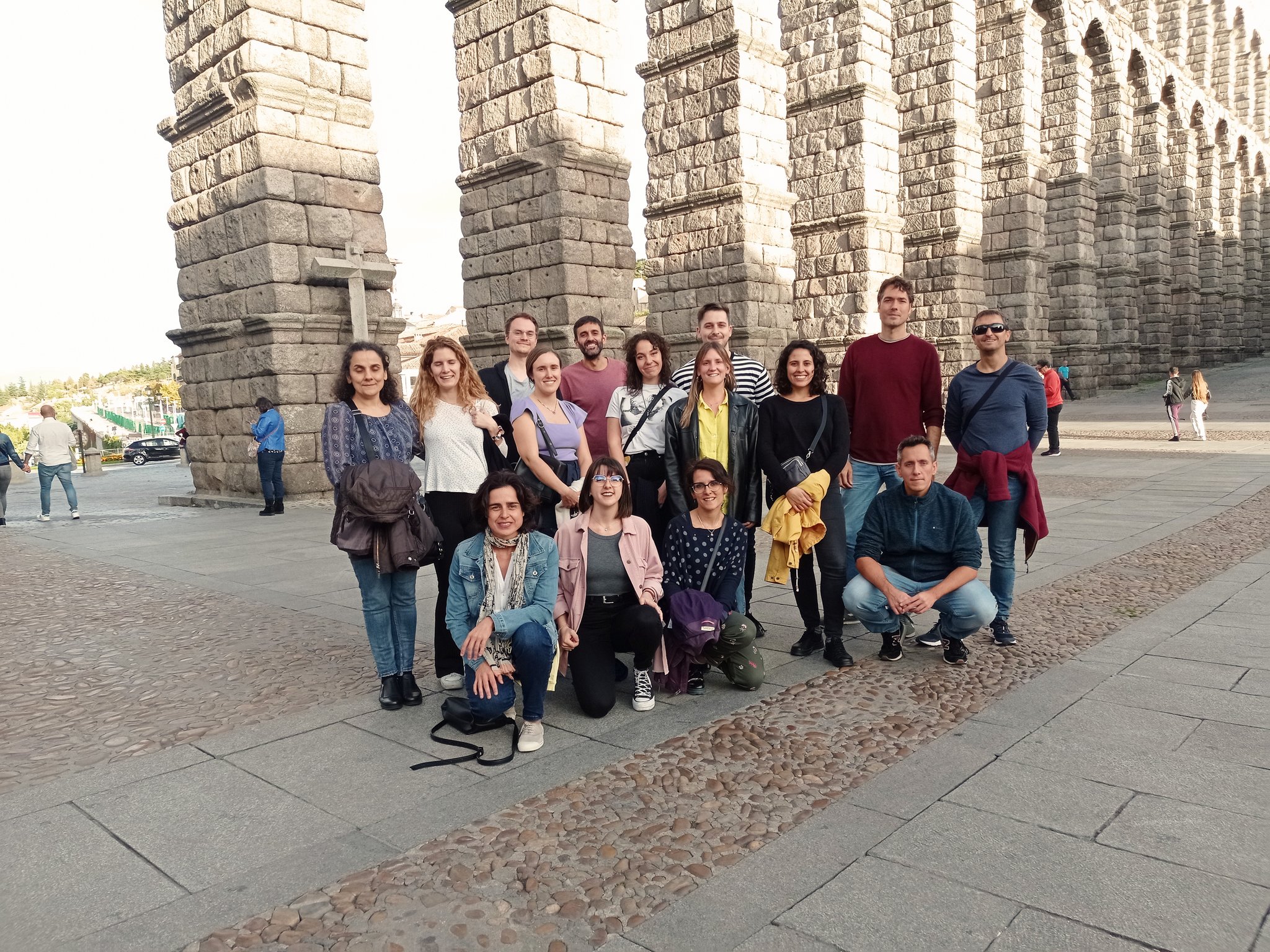
Group picture at Segovia 2022
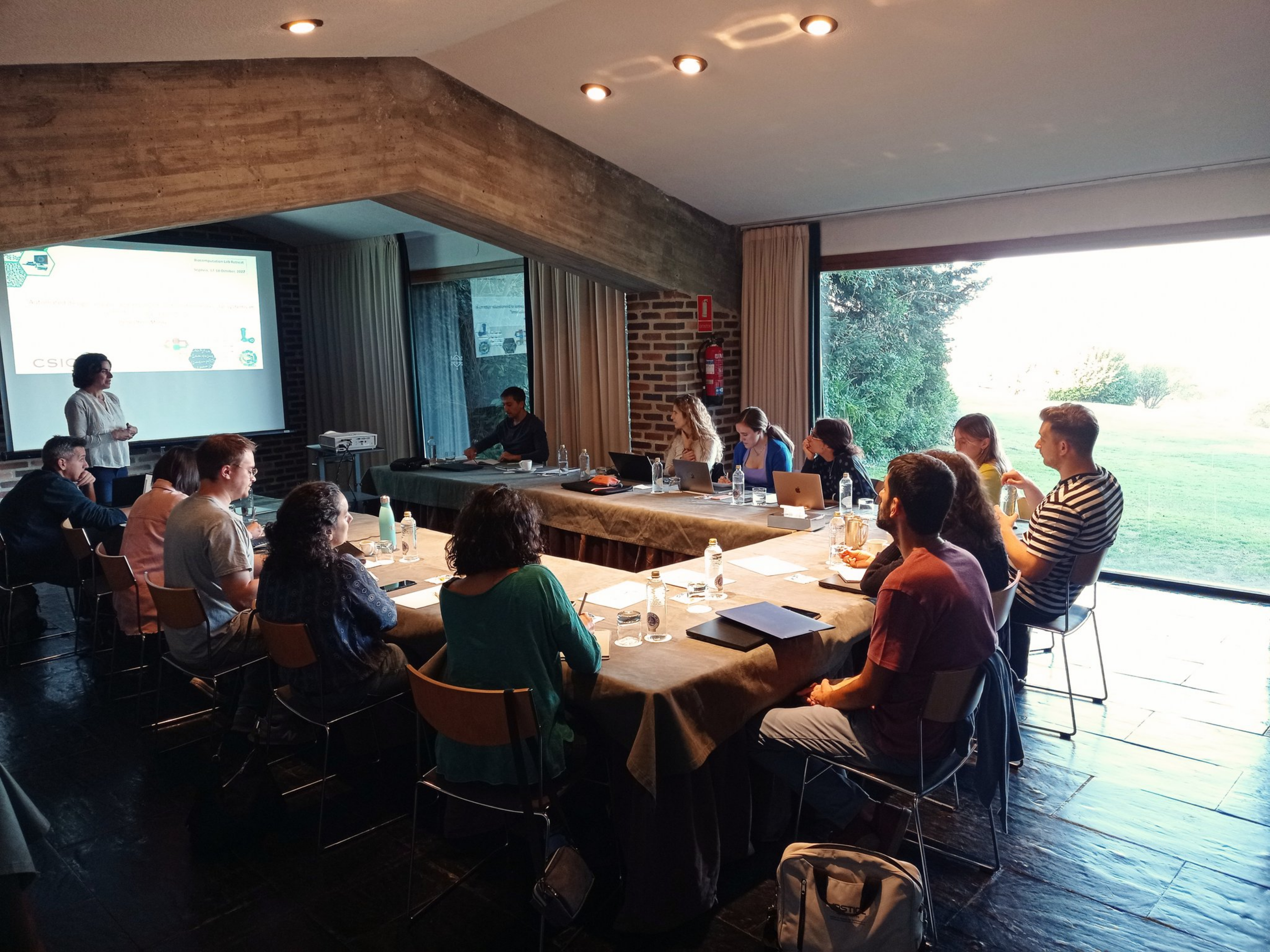
Meeting at the lab retreat 2022
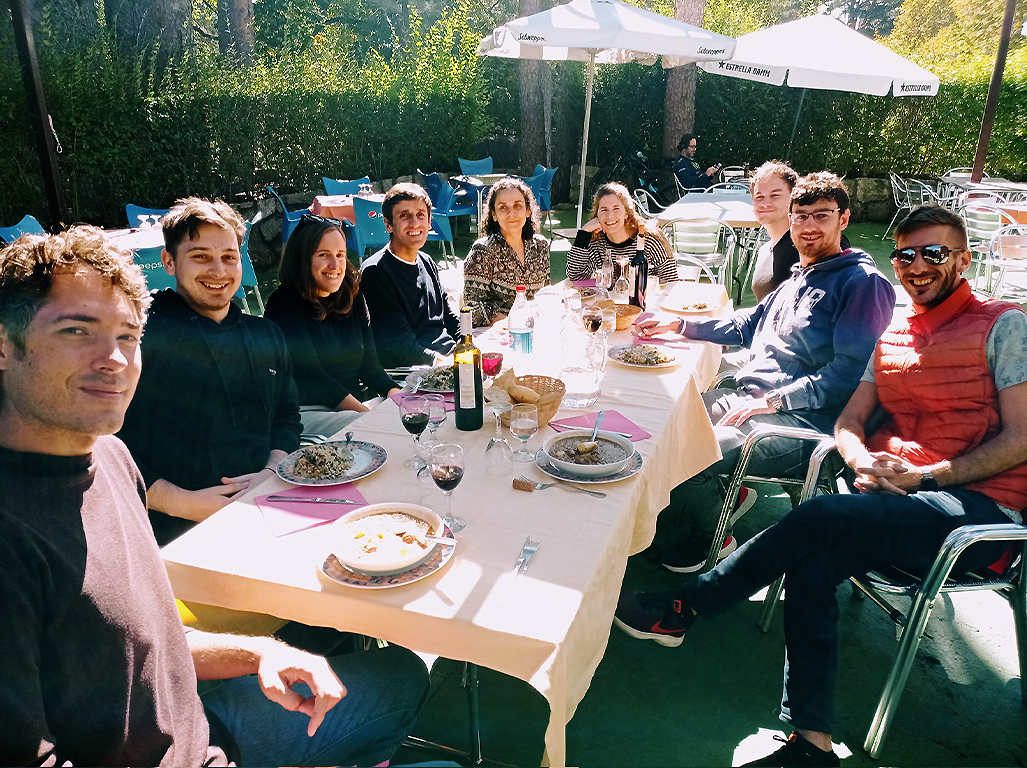
Retreat Autumn 2021
